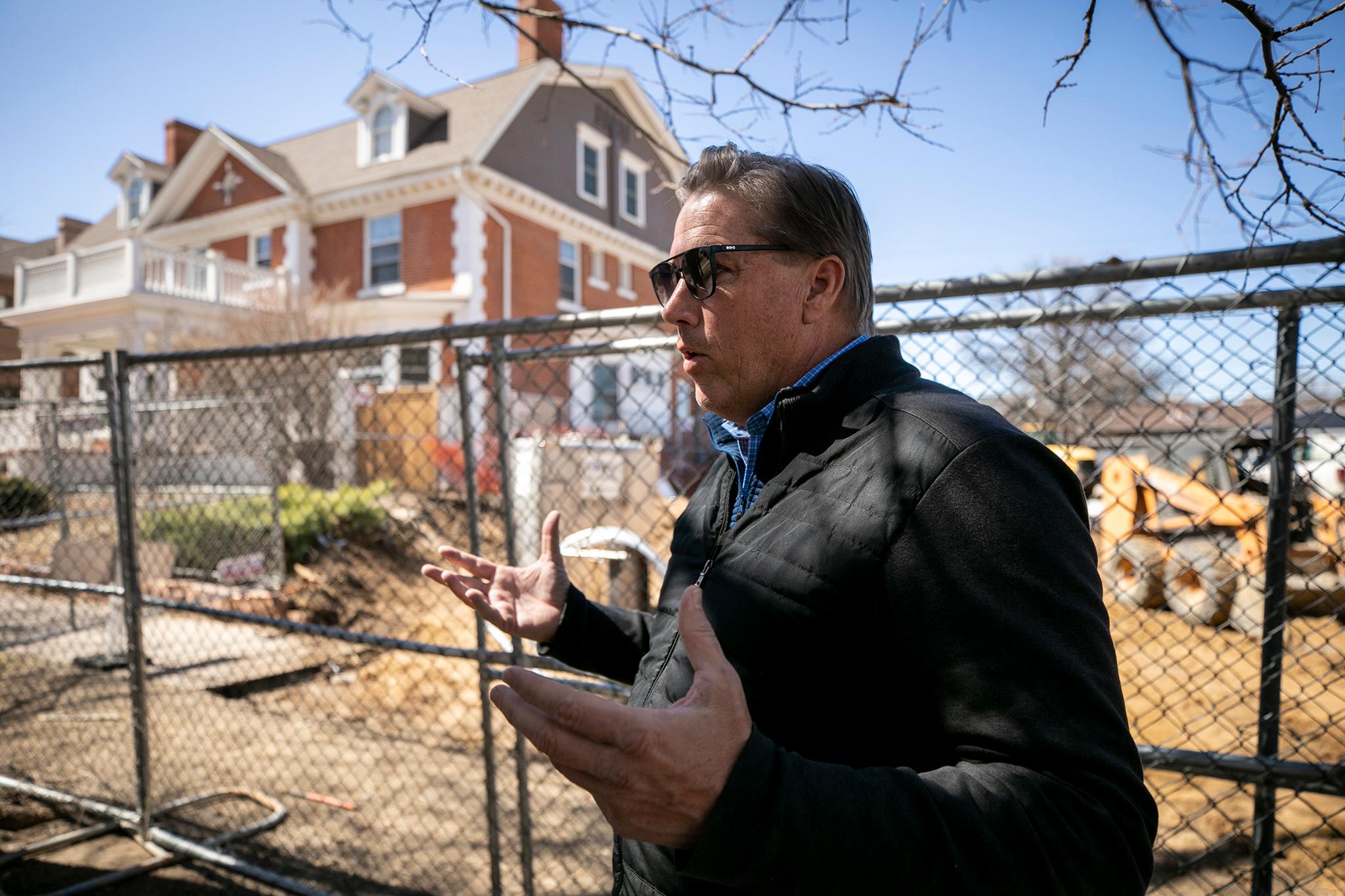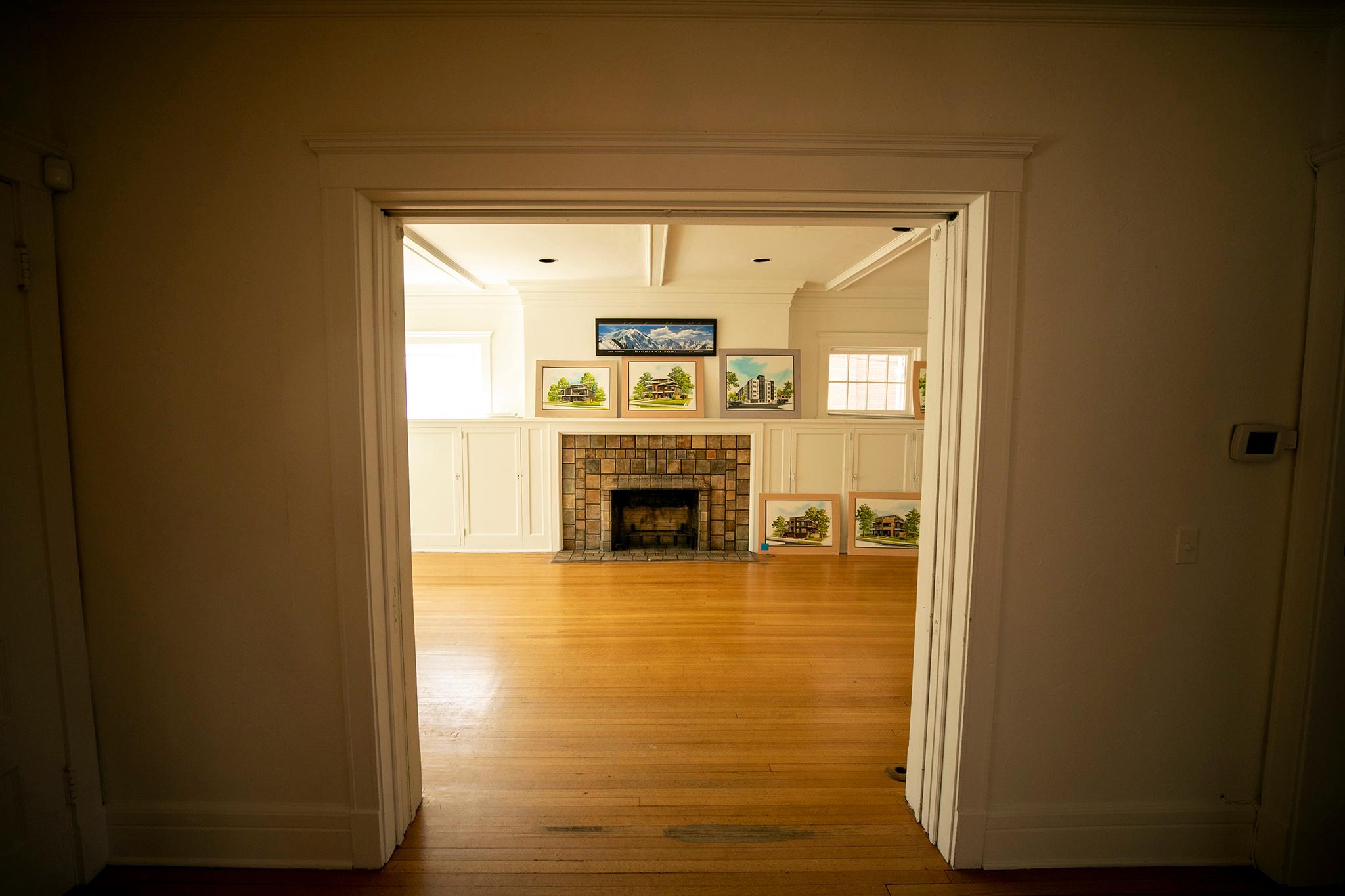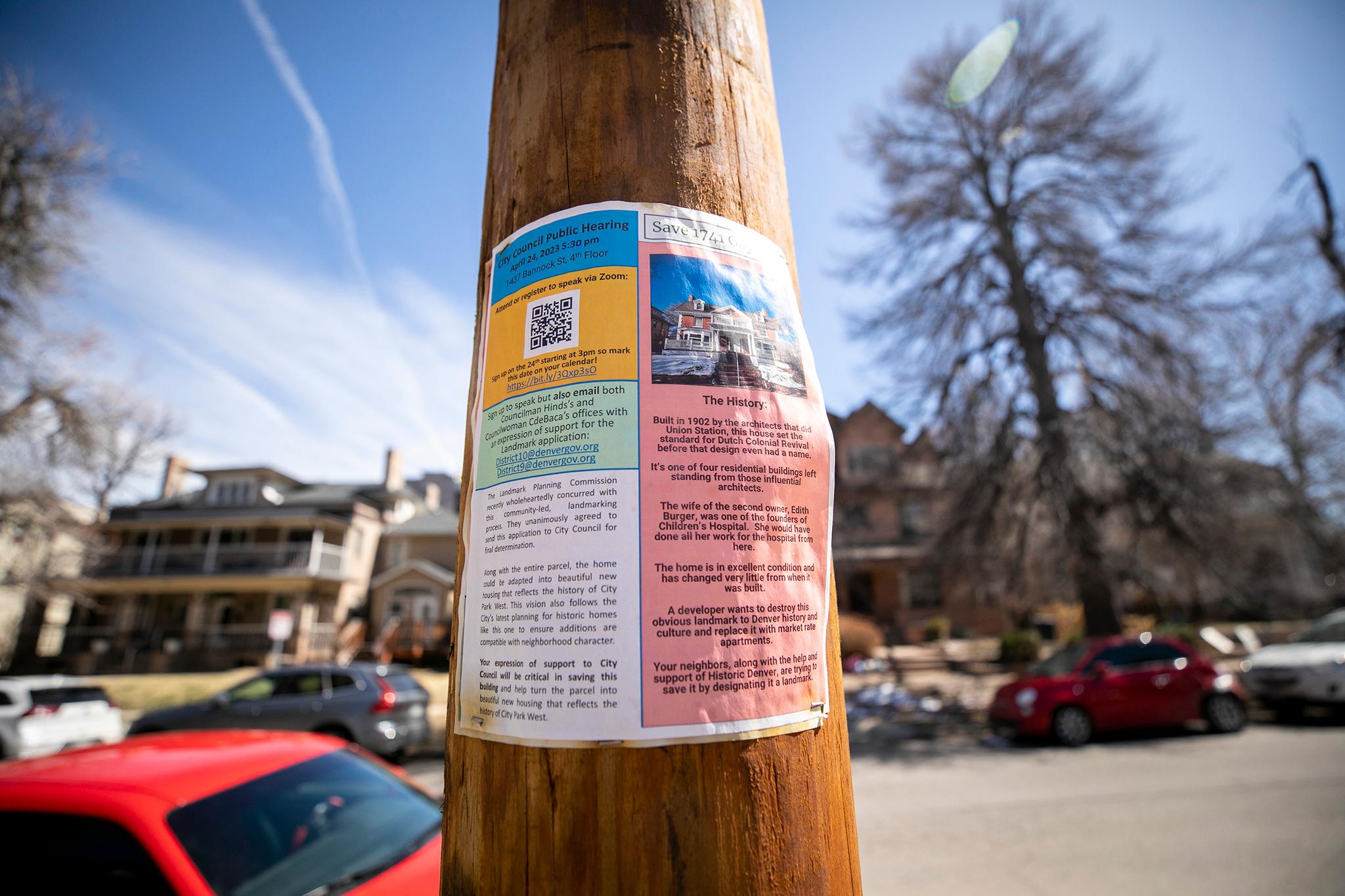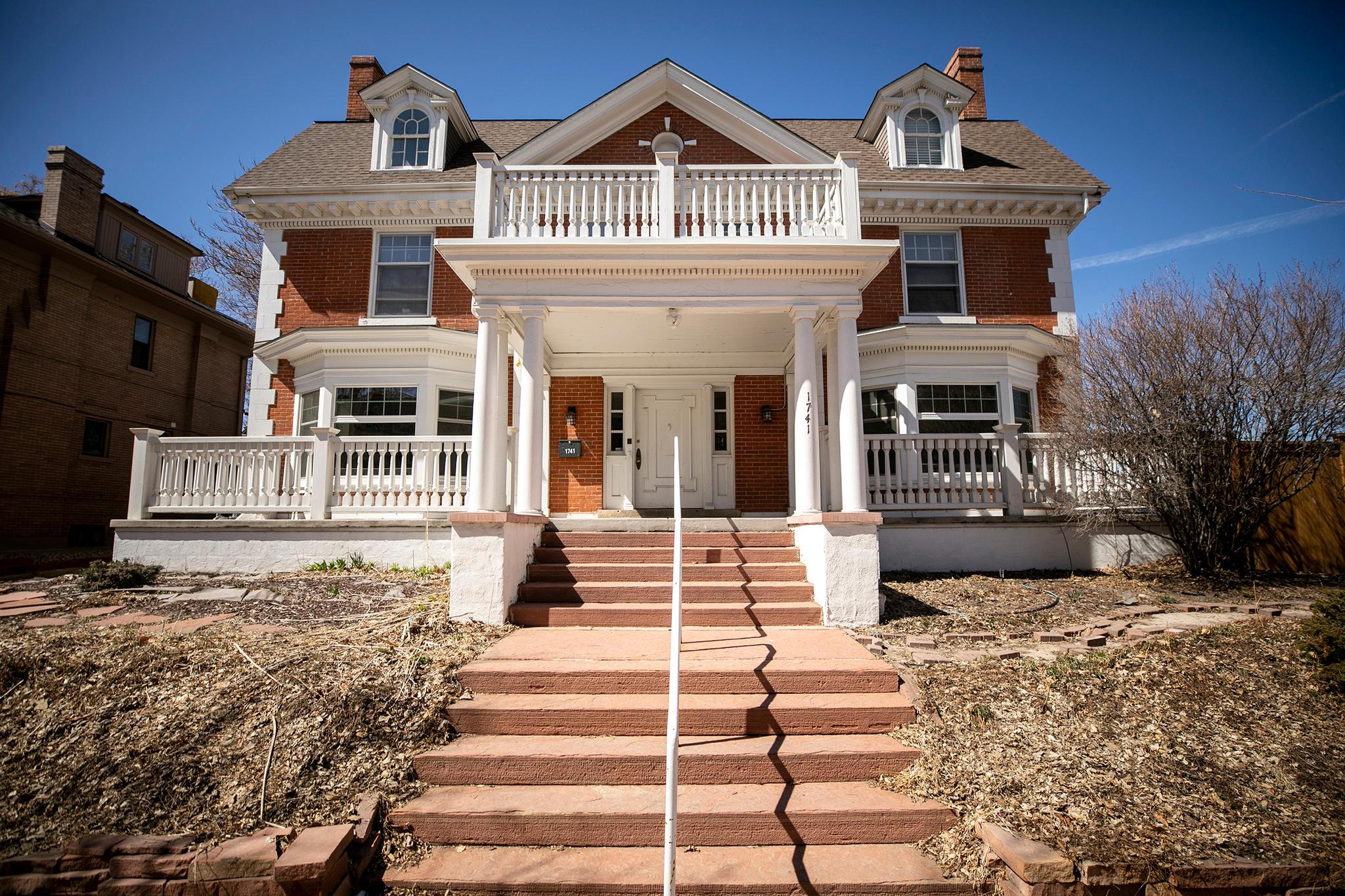In April, City Council approved historic landmark status for a City Park West home built in 1902. It was the second time ever Council approved designation against the wishes of the owner, who wanted to demolish the house and build 37 apartment units and 38 parking spots.
That owner, Mike Mathieson, is now suing the city in an effort to appeal the decision. Mathieson claims that an unnamed City Council member should have recused themselves over a private "vendetta" and "bias" against him, and takes issue with Council members voting remotely (Denverite does not know the identity of the Councilmember). The suit also argues that Denver did not have jurisdiction to make the landmark decision, and that the rules governing historic status in this case are "unconstitutionally vague."
According to the suit, Mathieson wants the historic status considered invalid, and for the city to pay for costs and "further relief."
Mathieson and his lawyer, Parker Semler, did not respond to Denverite's request for comment. Historic Denver, which helped the applicants with research and supported historic status, also declined to comment on the lawsuit, along with the Denver Office of Community Planning and Development, which oversees landmark applications.
Councilmember Candi CdeBaca represents District 9, which includes the City Park West house. She voted for designation, along with her fellow members of Council.
"The broad community support for 1741 Gaylord's designation alone is a loud affirmation that this structure is valuable to many people with varying ideas about why it's important," she told Denverite in a statement Tuesday. "That is the goal of preservation: to give our city a say in what is important to our culture, history, and character. It's not up for debate by a developer wanting simply to generate a profit at the expense of our communities. The complaint is frivolous and hopefully can be easily dismissed so as not to suggest our culture and history here in Denver are up for sale."

Much of the lawsuit takes issue with the history of 1741 Gaylord St.
It's something Mathieson has been arguing against since the landmark petition was filed. In order to be considered for historic status, a property must meet at least three out of 10 "significance criteria." Staff at Denver's Office of Community Planning and Development, which manages landmark applications, found that the building's architectural style, past owners and designers met qualifications for preservation.
Historical research from the city, Historic Denver and the applicants found that the Dutch Colonial Revival-style home was designed by Gove & Walsh, a well-known architectural firm. It was also owned by Edward Hurlbut, who owned a chain of local grocery stores, then by James Burger, a bank president and Colorado Senate member, and Edith Burger, one of the founders of Children's Hospital.
The Landmark Commission, the landmark applicants and City Council all found this history notable and grounds for preservation. But to Mathieson, 1741 Gaylord St.'s history is not historically significant, arguing that cities have many bankers, grocery owners, state senators, hospital founders and architects.
"There's tens of thousands of older homes in Denver," he told City Council in April. "Are you just gonna say, 'Because I don't want development here we're gonna make something historic?'"

The lawsuit takes these issues with history a step further, suggesting James Burger may have been a member of the Ku Klux Klan (KKK), even though his name does not show up in KKK records.
The suit argues that the KKK was "interwoven" with organizations like the Masons and the Shriners, which Burger was a part of, and that it was "virtually impossible" to be involved in Denver politics in the early 1900s without being a member of the KKK.
But publicly searchable ledgers of KKK membership from History Colorado do not show any results for "James Burger," "Edith Burger" or "Edward Hurlbut," or any addresses listed as 1741 Gaylord St. And as a politician, James Burger served in the Colorado Senate from 1907 to 1911, about ten years before the KKK rose to power politically in Colorado in the 1920s, according to historian Robert Goldberg, who wrote a book on the KKK in Colorado.
Historian Alan Prendergast said that there's no way to know about people not in the ledgers, but that the KKK did regularly recruit from the Shriners and the Masons and that some people made "arrangements" without officially joining.
Goldberg said that he trusts the Denver KKK ledgers, noting, "Just because someone was a Republican and a Mason does not make them a Kluxer."
When asked for comment, Scott Holder, one of the landmark applicants, said he found "no indication" of any ties with the KKK when researching the home's history.

At the center of the fight over historic designation is a conflict over development, density and historical importance.
When community members saw the house up for demolition, they rallied around 1741 Gaylord St., applying for historic status, circulating a petition and achieving the support of former mayor Wellington Webb, Historic Denver and multiple community Registered Neighborhood Organizations. They expressed concerns with Denver's fast-disappearing history as cookie-cutter condos pop up, and argued that preservation and density can exist by turning the large house into multi-family housing.
"We wanted to see Denver preserve, reuse and adapt historic homes instead of destroy them," Holder said during a public hearing in April.
But mediation between the community and developers failed. Mathieson said rehabbing or converting the property would be too costly, and adaptive reuse would lack space for necessary parking. He said he wanted to bring affordable housing to the neighborhood by designating a portion of the new development's units priced at 80 percent to 120 percent of the Area Median Income (that means income limits for units would range from about $62,600 to $98,500 for an individual, and $89,400 to $140,600 for a family of four).
"We already have a Cherry Creek, we've already got a Wash Park, we've got very expensive communities," Mathieson told City Council last month. "We don't need to have every house here be a $5 million house for the ultra-wealthy."
In the end, City Council voted unanimously in favor of preservation.
Editor's note: This story has been updated to include a statement from Councilmember Candi CdeBaca, to clarify how units limited by Area Median Income work and add Scott Holder's first name.













